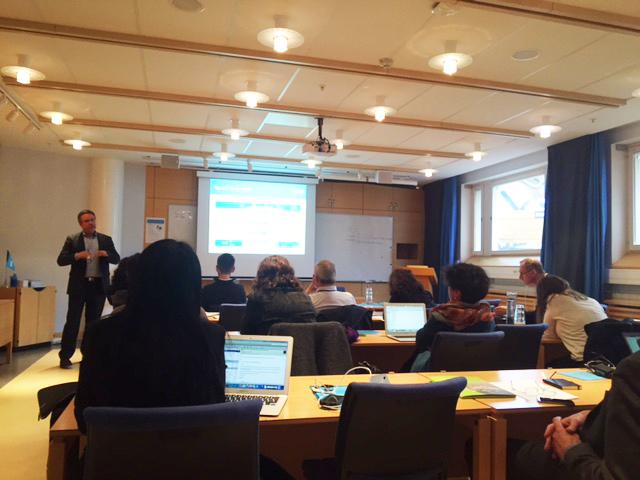Exchanging knowledge in In-Kind Contributions

Lund - On 27-28 April, BrightnESS In-Kind Field Coordinators met ESS project leaders for a two-day training on ESS In-Kind processes. Strengthening In-Kind Contribution and Coordination is the mandate of BrightnESS Work Package 2 (WP2), which aims at mitigating the risk associated to IKC through reinforcing quality, standards and best practices and facilitating continuous information flow between ESS and the In-Kind partners.
“This workshop is the first of a series of knowledge-exchange opportunities between the Field Coordinators and ESS Project Leaders”, says WP2 leader Carlo Bocchetta. ”Through this opportunity, Field Coordinators will be better positioned to help IK partners strengthen their relation with ESS project leaders. The event allows a deeper understanding of ESS workflows, practices and current status of the projects enabling better communication and effective interactions.”
“I found it was a very interesting and useful session”, confirms STFC’s Justin Greenhalgh, Senior Programme Manager for the UK elements of ESS. “I have already been involved with ESS for about a year but it was still useful to get to meet new key players and so have some of the background philosophy explained and see things with the ESS perspective.”
The programme provided an overview of the different areas involved in IKC activities. Presentations and discussions by ESS staff covered updates related to Accelerator, Target, Integrated Control System and Neutron Scattering Systems. ESS representatives shared information about procurement processes, logistics, general safety and protocols, intellectual property, and document access.
“The training was very well organised and the selection of topics covered during the two day’s workshop was appropriate for the tasks the hub coordinators are asked to accomplish in WP2. The room given for discussion and questions allowed a harmonic interaction between coordinators and speakers”, says Stefano Pasini, staff scientist at Jülich Centre for Neutron Science (JCNS–1) at Forschungszentrum Jülich (FZJ). “It was an excellent chance for the exchange of information and the establishment of first contacts.”
This first training session will be followed up by dedicated workshops focusing on specific areas. According to Pasini: “After this general overview I think it is essential for the future to have aimed workshops on selected subjects (e.g. NSS, engineering) where specific questions/problems can be addressed in more details.”




 is funded by the European Union Framework Programme for Research and Innovation Horizon 2020, under grant agreement 676548.
is funded by the European Union Framework Programme for Research and Innovation Horizon 2020, under grant agreement 676548.